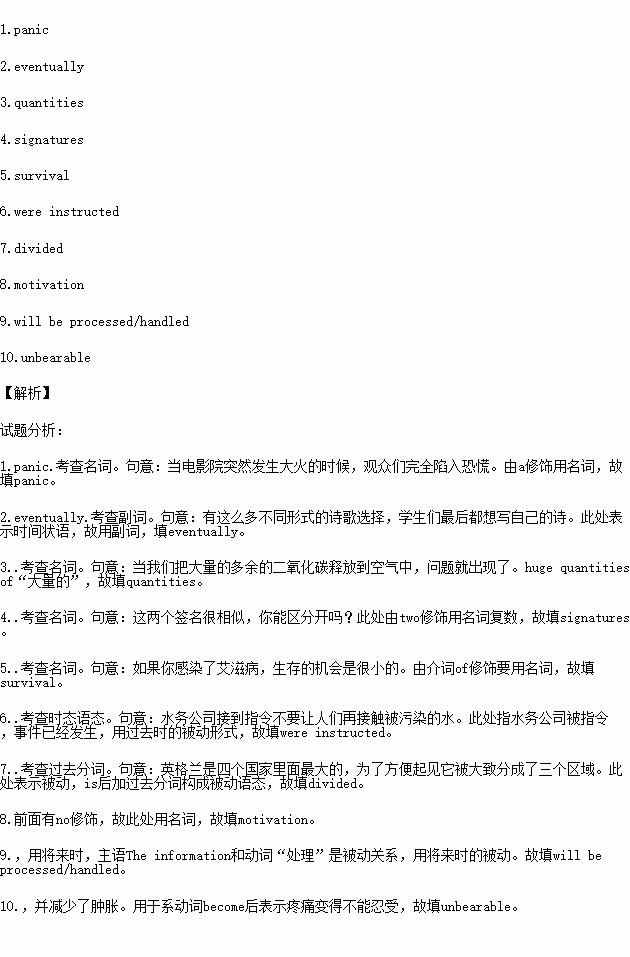题目内容
根据句意及所给单词的首字母或汉语提示,用单词的恰当形式填空。
1.The audience was completely thrown into a _________ (恐慌) when the big fire suddenly started in the cinema.
2.With so many different forms of poetry to choose from, students may e_________ want to write poems of their own.
3.The problem begins when we add huge q_________ of extra carbon dioxide into the atmosphere.
4.These two _________(签名) are very similar. Can you tell me apart?
5.If you develop AIDS, your chances of s_________ are very small.
6.The water companies _________ (接到指令) not to expose people to polluted water any more.
7.England is the largest of the four countries, and for convenience it is d_________ roughly into three zones.
8.Her parents gave her so much money that she’s got no _________ (动机) to get a job.
9.The information gathered by the telescopes _________ (处理) by computers tomorrow.
10.The cool water stops the burning process, prevents the pain becoming u_________ and reduces swelling.
 智能训练练测考系列答案
智能训练练测考系列答案
